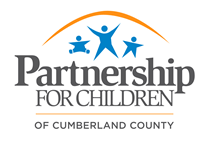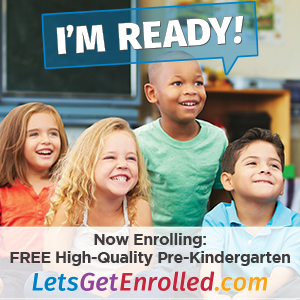The Family Focus Guide helps families and individuals in and around the Fayetteville area find resources in our community.
If you have a service-focused organization that serves families in the Fayetteville, Cumberland County area and would like to be listed, please email us at [email protected].
Provides county-wide law enforcement services.
Provides services for adults with developmental disabilities. Operates residential living facilities and day programs which provide job training and job placement; independent living skills instruction; and adult education classes.
Cumberland County Schools is the lead agency in Cumberland County for early intervention services to eligible preschool children with disabilities who reside in Cumberland County. Through the "Early-In" Preschool Program, special education and related services are provided by certified teachers and therapists to qualifying three-and four-year-olds and five-year-olds that are not eligible to attend kindergarten.
"Early-In" is a member of C.O.L.O.R.S. (Children’s Organizations Linking Opportunities, Resources, and Support) which is the Local Interagency Coordinating Council of Cumberland County. Formed in 1987 as a sub-committee of the North Carolina Interagency Coordinating Council, the mission and vision of C.O.L.O.R.S. is to facilitate access to a comprehensive system of early intervention services for children and families of children (birth to five years) with, or at risk for, developmental concerns or special needs. (Visit us at www.cumberlandcolors.com.) "Because starting early makes a difference."
If you have concerns regarding your child’s development, see contact information below:
If your child is under 3 years old.......................................................................... Call Child Service Coordinator at (910) 486-1605
If your child is 3 to 5 years old......................................................... Call Early-In, Cumberland County Schools at (910) 484-6761
For a child under 3 years of age who is a military dependent and living on post ..............................Call Educational & Developmental Intervention Services at (910) 907-3347
For a child 3 to 5 years of age who is a military dependent and living on post .................................. Call Fort Bragg Schools at (910) 907-0252
Early Head Start (EHS) is a comprehensive, flexible child development and parenting education program delivered through home visitation, center‐based services to children and families, or a combination of both delivery modes. Parent‐child activity groups may also be part of the program. The focus of the parent component is to assist parents build skills to assist their child's development, increase family literacy, and promote healthy parent‐child relationships. Providers also give parenting support and education, and assist families with transitioning their children into Head Start or other preschool programs when the child reaches age three. Family advocacy, resource and
referral to other community services are also provided.
Information, screening, and referral for family members with special needs.
Provides institutional group care for displaced and broken-home children between the ages of 0 and 21 years old.
Offers- outpatient services, individual and group therapy, marriage and family therapy, psychiatric evaluation, medication management, specialized assessments, specialized evaluation and testing, community support services (CSS), diagnostic assessments CSS for children, adolescents and adults intensive in-home services, therapeutic homes/treatment, foster care.
Assists schools with meeting the needs of at risk students in high poverty areas. School-wide services allow school improvement teams to utilize funds for every child in order to improve student academic achievement. Offers preschool programs for qualifying students at-risk of not meeting academic achievement standards.
Provides financial classes, briefings and counseling to soldiers, family members, commanders, and leaders.
If you are a grandparent raising your grandchildren you are not alone. There are approximately 2.5 million grandparents in the US who are solely responsible for the basic needs of their grandchildren. In Cumberland County, 3,783 grandparents are raising their grandchildren. Having someone who understands what you are going through can make a world of difference. The Partnership for Children of Cumberland County hosts a Grandparents Raising Grandchildren Support Group just for this reason. Our support group meets monthly and provides a way for grandparents to share stories and tips, spend times with others who are in similar situations, and learn about services available in the community.
Head Start is a federal matching grant program that was initiated in the mid-1960s as part of President Lyndon B. Johnson's "War on Poverty." The mission of the Head Start program is to "promote school readiness by enhancing the social and cognitive development of children through the provision of educational, health, nutritional, social and other services to enrolled children and families" (ACF, 2008). For eligible low-income children, Head Start provides free access to preschools, which are provided primarily in centers and are expected to conform to a specific set of guidelines laid out in the Head Start Program Performance Standards and other regulations (45 CFR 1301-1311, 2006). In addition to early childhood education, Head Start incorporates parental involvement and facilitates access to health care services; most Head Start programs also provide at least one meal to children during the day. The program requirements are flexible to meet the needs of the community, allowing individual programs to determine such program characteristics as the number of hours per day, or months per year, that a participation must attend; curriculum; teacher salary; and mode of delivery (in a home, a school, or a center)
Assists severely disabled people in developing skills and making environmental changes that will enable them to live independently. Provides guidance and counseling, rehabilitation engineering, attendant care and attendant management training, home and vehicle modifications, housing information and placement assistance, and assists with certain equipment purchases. Serves Cumberland, Bladen, Harnett, Hoke, Sampson, Robeson, Moore, Scotland counties. Rehab goals are to help with return to work and maintaining job.
Program Description: For all ages, through play, parents discover how to interact with their child in a way that promotes communication; problem solving skills; and fun centered learning. Meetings held every other month on the 1st Monday at the Partnership for Children Resource Center from 6:30pm - 8:00pm.
Provide direct support for families with special needs. Offer specialized in home nursing care and CNA's for high risk obstetrics, postpartum, pediatrics, and adults.
Provides home visits, infant care, and parenting classes.
The Nurturing Parenting Programs are family-based programs that can be offered in a group setting, in a home-visiting setting, or as a combination of both group meetings and home visitation.[1] Components of the program include 1) developing empathy, facilitating parent-child bonding and attachment; 2) teaching parents appropriate expectations of children’s growth, particularly ways to promote children’s feelings of self-worth, trust, and security; 3) employing discipline that promotes the dignity of children and adults; 4) empowering adults and children to nurture themselves, others, and their environment; 5) promoting positive self-worth; and 6) helping all family members develop a meaningful level of selfawareness and acceptance. Parent education programs that are designed to prevent the development of poor parenting behaviors are short-term, approximately five to 18 sessions in length. Parenting intervention programs are designed to “intervene” to prevent escalation in the early stages of maltreatment. These are generally from 12 to 20 sessions. Parenting treatment programs are designed to “treat” abusive and neglectful parent-child or parent-teen dysfunctional interactions. These are generally 15 to 25 sessions.
The Nurturing Parenting Programs are family-based programs that can be offered in a group setting, in a home-visiting setting, or as a combination of both group meetings and home visitation.[1] Components of the program include 1) developing empathy, facilitating parent-child bonding and attachment; 2) teaching parents appropriate expectations of children’s growth, particularly ways to promote children’s feelings of self-worth, trust, and security; 3) employing discipline that promotes the dignity of children and adults; 4) empowering adults and children to nurture themselves, others, and their environment; 5) promoting positive self-worth; and 6) helping all family members develop a meaningful level of selfawareness and acceptance. Parent education programs that are designed to prevent the development of poor parenting behaviors are short-term, approximately five to 18 sessions in length. Parenting intervention programs are designed to “intervene” to prevent escalation in the early stages of maltreatment. These are generally from 12 to 20 sessions. Parenting treatment programs are designed to “treat” abusive and neglectful parent-child or parent-teen dysfunctional interactions. These are generally 15 to 25 sessions.
Plans, adminsters, and advocates services for young children and their families. Provides funding for programs and services for young children under six years of age and their families, and access to high-quality and affordable childcare, health care, and other critical family services.
Friday 8-12 Noon


